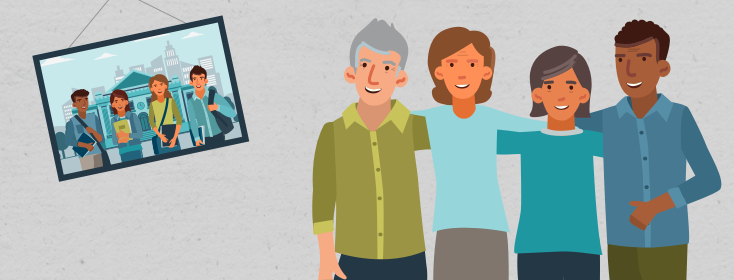A Cure That Costs Nothing: Time With Old Friends
It may not eradicate the cancer, but spending time with people we care about certainly is a cure for something.
When my cancer was still new to me, it was time with friends that made the idea of treatment more palatable. When I was deep in the throes of chemotherapy, it was time with friends that eased my anguish and lifted the malaise. When I was finished with chemo and had moved on to a new treatment, it was time with friends that reminded me why it had been worth doing and gave me hope about facing the future.
Some people may prefer a more solitary existence, but most of us are social creatures whether or not we think of ourselves that way. There are times when we may want to be alone, but deeper down still wish someone would come and make things feel better.
Old friends remind me of the "old normal."
Spending time with old friends is beneficial on a number of levels. For one, it offers the chance to indulge in a bit of good humor. Old friends are often afforded the privilege of finding a light through a hole of worn cloth where less entrenched relationships may feel required to respect the opacity of whatever weave they are presented with. A sense of history allows for some level of forbearance with regard to any overstep on the expected politeness and reserve one might associate with the treatment of a cancer patient. In other words, an old friend may easily bring a sense of normalcy to the situation -- the "old normal," not the new one.
Like family, old friends also offer a feeling of support just by being present. Whether on the phone or at bedside or anywhere in between, the presence of a person who knew you "before you were you" has the potential to change a patient's perspective. Such a sense of history, perhaps served most effectively by a friend who has not been seen for some time, also can ground a patient through a reminder of the younger self. We can see, at least temporarily, through the eyes of these old friends, their memory of us, and for a moment be transformed into that other self. For me, the effect has been rejuvenating, restorative.
Old friends offer a feeling of support just by being present.
At the very least, time with friends of all stripes functions as a distraction from the stress of living with cancer. Any reduction in stress is healthy, so the palliative nature of genial socialization should not be overlooked. When undergoing cancer treatment, attitude is extremely important. Neither mood nor attitude nor outlook has any real biological influence on a drug's effectiveness, but they can strongly influence a patient's willingness to adhere to treatment schedules, to "tough out" the effects of medication, even to get up and move about and force the body to work. This latter element, the basic and simple exercise perhaps of walking to the living room, or to the car, just to change scenery a bit and sit somewhere new, with a friend alone or out on the town, makes muscles contract, pumps lymphatic fluid, helps to purge toxins and strengthen the immune system. The hard work of even gentle exercise becomes easier with the carrot of friendship coaxing a person along, helping a patient to forget the difficulties of treatment, allowing -- if just for the moment -- a ravaged body to be envisioned as that younger self.
Editor's Note: We are extremely saddened to say that on October 21, 2018, Jeffrey Poehlmann passed away. Jeffrey’s advocacy efforts and writing continue to reach many. He will be deeply missed.

Join the conversation